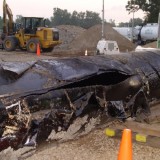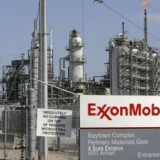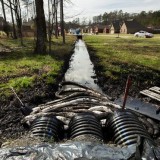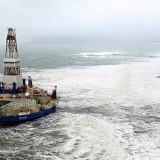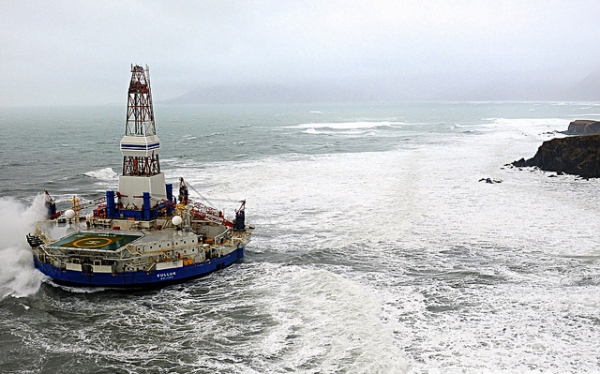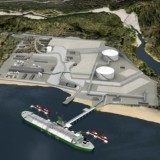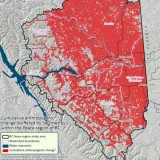On the side of the Christy Clark bus are the words “Debt Free BC”.
This could mean one of two things – we are now debt free or we will be. Either way, this statement stands as the all-time whopper in BC history and that covers a hell of a lot of territory.
I do not rely on politically-oriented think tanks for my information, rather noted independent economist Erik Andersen. If you add the $70 Billion in direct debt projected in Clark’s latest Budget to secret “taxpayer obligations” relating to private power contracts and public-private partnership (P3) infrastructure deals, you get – wait for it – over $170 BILLION, that’s with a “B”.
What is important to know about the debt is that in 2001, when the Liberals took over, every man, woman and child owed a shade over $8,000. Today we each owe $40,000 – five times what we owed before this so-called business-oriented, fiscally careful bunch of cheats and hypocrites took over.
No matter how you crunch the numbers, the NDP governments in their decade look like misers and skinflints next to this bunch.
Assuming that Premier Clark is referring to her “Prosperity Fund”, this is pie in the sky and cow pie at that.
[signoff1]
You may remember that the Premier first announced this as imminent. Now it is after the 2017 election! It might be added that by then, BC will be in even deeper financial trouble than today.
There is little, if any, certainty that the Liquefied Natural Gas (LNG) will ever come on stream. There must be markets for it offshore, since the domestic market is flooded in natural gas from “fracking”. To give you a bit o f a feel for this, only a few months ago, the industry and government flacks were talking about the huge Asian need for our gas in LNG form, then recently learned that our biggest potential customer, China, was sitting on some of the world’s biggest unconventional gas reserves. Russia has the largest supply of gas in the world.
The plain truth of the matter is that a large scale LNG industry in BC is speculative at best.
Let’s look at a couple of natal difficulties faced by companies.
A long-term market demand such as would justify LNG from BC just isn’t likely to be there in four years’ time.
Secondly, the LNG industry faces huge environmental hurdles. Two major questions in that regard are:
- Where will the massive amount of water needed come from? We simply don’t have “free water” available.
- After this water is laced with highly toxic chemicals, where will if go? Into the water table?
These two matters only touch some of the environmental issues – which include the climate impacts of all the greenhouse gases associated with this industry.
The underpinning of the industry is hundreds of millions of dollars in pipelines and port facilities. Premier Clark wants voters to brush aside these and many collateral concerns, thus convince voters that in four or five years all these issues will be resolved, including air-tight contracts with Asian customers to take this LNG. (It should be added that if, say, China, signs such a contract, the minute they no longer need our product they will vanish into the atmosphere.).
[signoff3]
It surprises me that Adrian Dix is playing softball with these issues. This is looking like ’09 all over again.
Mr. Dix, your position on the Kinder Morgan tanker port proposal was nice but marred by the delay. I told you many months ago that if you were opposed to Enbridge that logic should make you opposed to Kinder Morgan as the issues are the same.
Your position favouring LNG plants is puzzling, if only because you seem to be following Clark’s pied piper’s seductive path to supporting a dream that is almost certain never to come true.
To you, Mr. Dix, there is no way this government can win on its merits – you have to give it to them and you seem to be trying your best to do just this. What is truly troublesome is your amiable Adrian approach, with an endless stream of small policy announcements – sort of a fart a day.
I realize that people tell you that they want a politer politics in BC. That’s what Bob Skelly tried in the 80s and you know what happened to him.
Politics is a blood sport and your nicely, nicely approach is letting Premier Clark get away with murder. Despite a fivefold increase in the provincial debt, she’s painting you as wastrels and her government as careful money managers!
Your best issue, the appalling fiscal policy of the Campbell/Clark government, is being used as a positive thing for them and you are responding rather than attacking. We’re seeing a tactic similar to when agents acting for George W. Bush, a draft dodger, denigrated the much-decorated John Kerry’s war record so they could lay claim to being strong on national defence. You’re becoming the essence of John Kerry, reacting weakly on issues that should have you on the attack!
On environmental issues you seem to be passive and non-threatening! These issues, along with the dismal Liberal record on money matters, ought to have you leading firmly, not cowering behind a cloud of good manners.
Mr. Dix, it’s yours to win and to quote the Baseball manager Lou Durocher, “nice guys finish last”.


